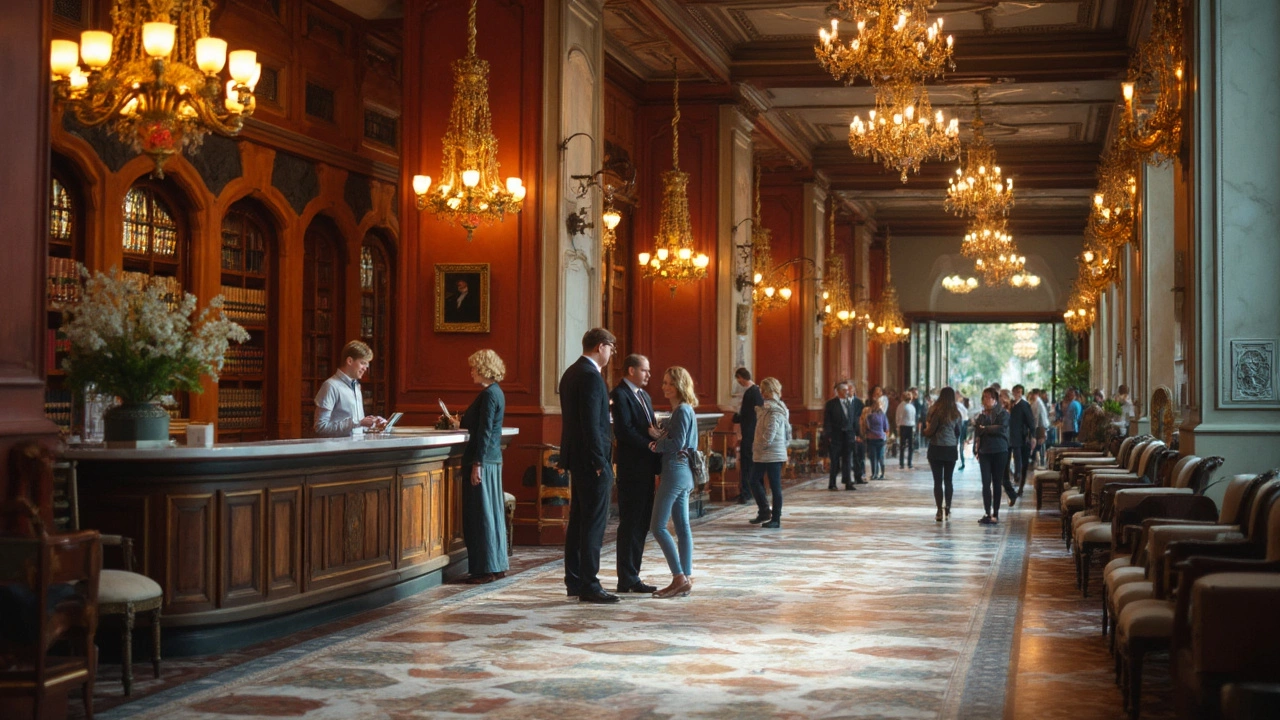Hotel Goals: Find the Stay That Actually Works for You
When you book a room, you probably think about price first, but there’s a lot more that decides whether a hotel feels right. Your personal hotel goals – the things that matter most to you – should guide every decision, from location to amenities. By spelling out those goals before you click ‘book’, you avoid disappointment and end up with a stay that fits like a glove.
Below are the most common goals travelers have and how to turn them into concrete choices. Keep this checklist handy the next time you plan a getaway, a business trip, or a weekend break.
Define Your Hotel Goals
Start by asking yourself three quick questions. First, what’s the main purpose of the trip? Is it work, romance, family fun, or pure relaxation? Second, which comforts can you’t do without – fast Wi‑Fi, a good breakfast, a quiet room, or a pool? Third, how much are you willing to spend for those comforts? Write down the answers; they become your goal list.
Typical goals look like this:
- Business efficiency: Strong internet, desk space, early check‑in, and a location near transport hubs.
- Romantic escape: Boutique vibe, private balcony, candle‑lit dining, and a quiet atmosphere.
- Family-friendly fun: Kids’ club, on‑site meals, extra beds, and easy access to attractions.
- Budget‑savvy stay: Competitive rates, free parking, and basic but clean rooms.
- Eco‑conscious lodging: Green certifications, recycling programs, and energy‑saving features.
When you know which bucket you fall into, filtering hotels becomes a lot faster.
Match Goals to Hotel Types
Now that you have a clear list, line it up with the hotel categories that usually deliver those perks.
Business hotels excel at the work‑oriented goals. Look for phrases like “business center”, “meeting rooms”, and “high‑speed Wi‑Fi” in the description. Chains often guarantee a quiet floor and a 24‑hour desk, which saves you time.
Boutique hotels are perfect for romance or design‑focused travelers. They tend to have unique décor, intimate service, and often a bar or restaurant on site. The price can be higher, but the atmosphere usually matches the goal of a memorable stay.
Hand‑picked or luxury collections bring a mix of upscale amenities – spa, concierge, premium bedding – and are great for special occasions. If you want a splash of luxury without breaking the bank, look for limited‑time offers or off‑season rates.
Eco‑friendly hotels showcase certifications like Green Key or LEED. They might advertise solar panels, water‑saving showers, and locally sourced food. Even if the hotel isn’t fully “green”, a few sustainable practices can still align with an eco‑goal.
Budget chains and independent inns focus on value. Free parking, complimentary breakfast, and simple rooms are the usual draws. These are your go‑to for a cost‑effective trip where you sacrifice only non‑essential luxuries.
Read reviews for clues about how well a hotel meets each goal. Guests often mention if the Wi‑Fi is spotty, if the staff is helpful, or if the pool is actually usable. Real‑world feedback is the fastest way to confirm whether a hotel lives up to its promises.
Finally, use filters on booking sites. Most platforms let you tick boxes for free Wi‑Fi, breakfast included, pet‑friendly, or eco‑label. Applying those filters narrows the list to places that already meet several of your goals.
By clarifying what you need and matching those needs to the right hotel type, you turn a random booking into a confident choice. The next time you start searching, grab a pen, write down your top three hotel goals, and let that guide every click. You’ll save time, avoid surprises, and walk into a room that feels just right for your trip.
What is the Goal of a Hotel Business?
The hotel business is more than just offering rooms; it’s about fulfilling the diverse needs of guests while balancing profitability. From providing excellent service to ensuring sustainability and adapting to changing trends, these goals are crucial for a hotel's success. Understanding the dynamics of guest satisfaction and operational efficiency can help hoteliers maintain their competitive edge. This article explores these goals and offers insights into maximizing both guest experiences and business productivity.
